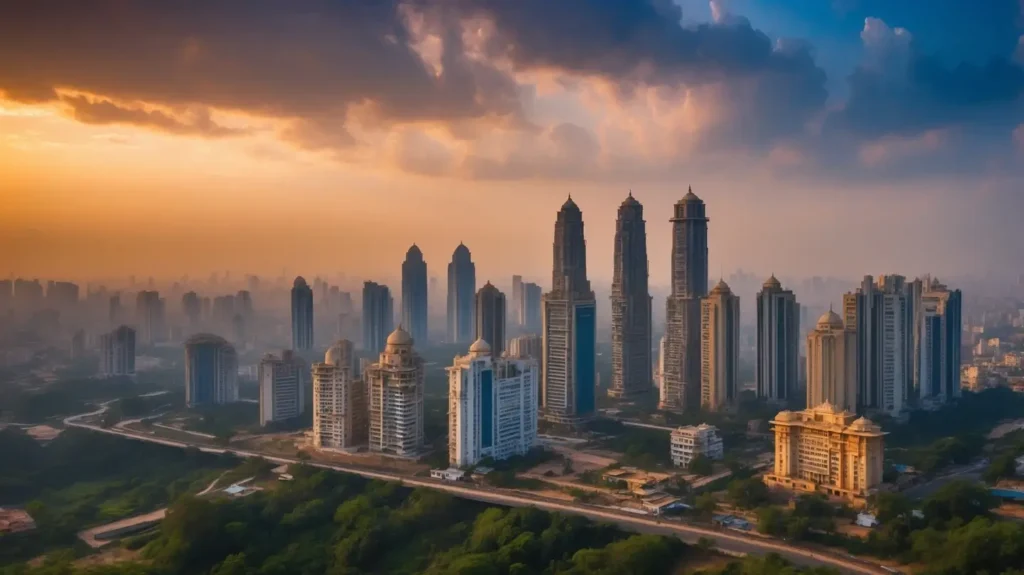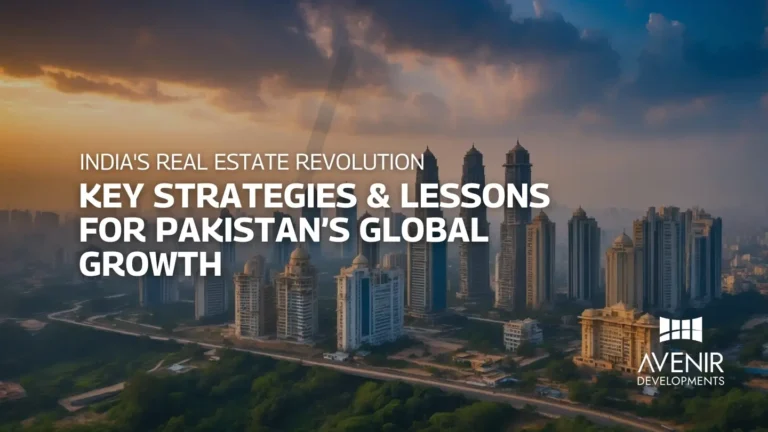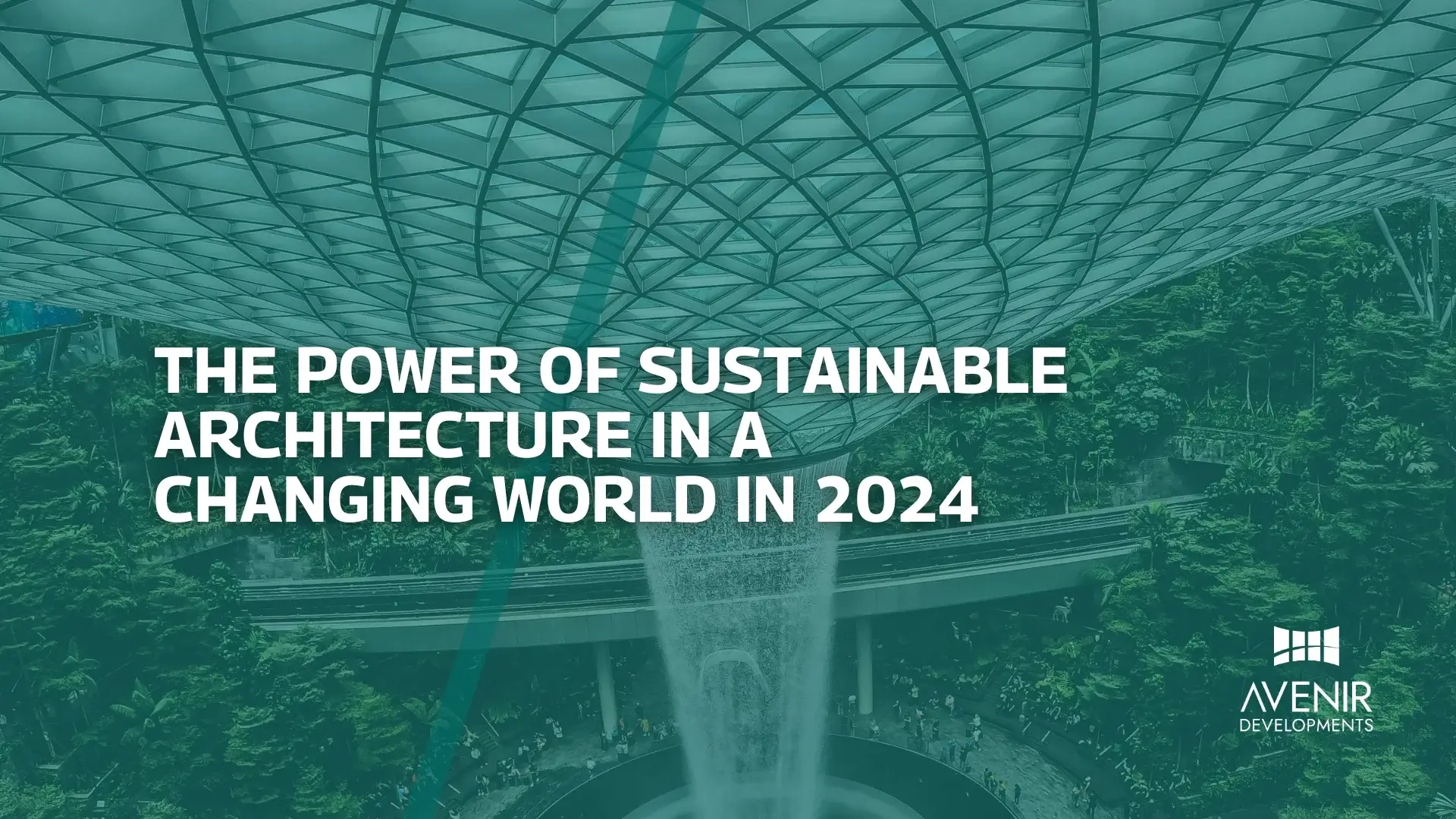I recently had the opportunity to travel to India, where I witnessed a remarkable transformation in their real estate sector. What struck me most about India’s Real Estate Revolution was the pivotal role that strategic government policies and initiatives played in this growth story. From the implementation of RERA (Real Estate Regulation and Development Act) to the ambitious Smart Cities Mission, India’s approach offers valuable lessons for Pakistan’s real estate development journey.
As an architect and property developer in the vibrant cities of Lahore and Islamabad, I’ve had a front-row seat to Pakistan’s evolving real estate landscape. I’ve seen firsthand the challenges we face – the lack of clear regulations, the fragmented market, and the need for more modern, sustainable development. But amidst these challenges, I also see immense potential.
In this blog post, we’ll delve into the key strategies that propelled India’s real estate revolution sector to new heights. We’ll explore how Pakistan can emulate these successes, from regulatory reforms to technological advancements, to unlock our own potential for sustainable, investor-friendly, and innovative real estate development.
Laying the Groundwork: Regulatory Reforms and Their Ripple Effects
To truly understand the magnitude of India’s real estate revolution and transformation, we must first examine the regulatory foundation upon which it was built. The cornerstone of this change was the introduction of the Real Estate (Regulation and Development) Act, or RERA, in 2016.
RERA: A Game-Changer for India’s Real Estate Revolution
RERA was a game-changer, aimed at increasing transparency, protecting the interests of buyers, and boosting investor confidence in the market. The act mandated the registration of all real estate projects with a regulatory authority, ensuring compliance with strict guidelines and timely delivery of projects. This newfound transparency, coupled with measures like escrow accounts for project funds and standardized carpet area calculations, instilled a sense of trust in buyers who had previously been wary of the often murky real estate market.
According to a 2023 report by JLL, a leading global real estate services firm, RERA has significantly reduced project delays and disputes in India. The report states that “RERA has brought about a paradigm shift in the Indian real estate sector, making it more organized, transparent, and accountable.”
GST: Simplifying Taxation and Boosting Efficiency
In addition to RERA, the introduction of the Goods and Services Tax (GST) in 2017 further streamlined the real estate sector by consolidating multiple taxes into a single, unified tax structure. This not only simplified the tax regime but also made it easier for developers to manage costs and streamline project timelines.
The impact of GST on real estate development in Pakistan cannot be understated. According to a 2024 study by KPMG, the implementation of GST in India led to a reduction in construction costs by up to 5%. This reduction in costs, coupled with the increased transparency brought about by RERA, has made real estate investment in India more attractive than ever before.
Lessons for Pakistan
Pakistan can learn valuable lessons from India’s regulatory reforms. The implementation of a RERA-like act in Pakistan would go a long way in addressing the lack of transparency and accountability that have plagued the sector for years. A unified tax system, similar to GST, would also simplify the tax regime and make it easier for developers to do business.
The government has made some promising moves in this direction. In 2020, the Punjab government passed the Punjab Real Estate Regulation and Development Act, which is a step in the right direction. However, more needs to be done to ensure its effective implementation and to extend similar regulations to other provinces.
Moreover, Pakistan must learn from India’s experience and avoid the pitfalls that have hampered the implementation of RERA in some states. These include delays in setting up regulatory authorities, lack of adequate staffing, and challenges in enforcing the act’s provisions.
By taking proactive measures to address these challenges, Pakistan can create a regulatory environment that fosters trust, transparency, and accountability in the real estate sector. This, in turn, will attract more investment, boost construction activity, and drive economic growth.

Smart Cities and Beyond: India’s Push for Modern, Sustainable Development
While regulatory reforms laid the groundwork, India’s real estate revolution truly took flight with the launch of the Smart Cities Mission in 2015. This ambitious initiative, aimed at developing 100 smart cities across the country, has become a symbol of India’s commitment to modern, sustainable urban development.
Smart Cities: A Vision for the Future
The Smart Cities Mission is not just about building new cities; it’s about transforming existing ones into vibrant, livable spaces that leverage technology to improve the quality of life for residents. Key features of smart cities include:
- Integrated Command and Control Centers (ICCCs): These high-tech hubs act as the “brain” of a smart city, monitoring and managing various aspects like traffic, safety, and utilities in real-time.
- Intelligent Transportation Systems (ITS): These systems use sensors and data analytics to optimize traffic flow, reduce congestion, and improve public transportation.
- Renewable Energy Integration: Smart cities prioritize the use of renewable energy sources like solar and wind power to reduce their carbon footprint.
- Digital Governance: E-governance platforms enable citizens to access services, pay bills, and lodge complaints online, improving transparency and efficiency.
The Smart Cities Mission has gained significant momentum in recent years, with several projects nearing completion. For example, the city of Pune has implemented an intelligent traffic management system that has reduced traffic congestion by 20%. Similarly, the city of Surat has developed a comprehensive water management system that ensures equitable distribution of water resources.
A prime example of a forward-thinking, newly developed city in India is Gift City, Gujarat. This meticulously planned city boasts state-of-the-art infrastructure, a focus on sustainability, and a business-friendly environment, designed to attract global investment and become a major financial hub.
Affordable Housing Initiatives: Addressing the Needs of the Masses
In parallel with the Smart Cities Mission, India has also launched several affordable housing initiatives aimed at addressing the housing shortage for the economically weaker sections of society. The most prominent of these is the Pradhan Mantri Awas Yojana (PMAY), which aims to provide affordable housing for all by 2022.
Under PMAY, the government provides financial assistance to eligible beneficiaries in the form of subsidies and interest rate concessions. This has not only made housing more affordable for millions of Indians but has also spurred demand for real estate in the affordable segment.
Lessons for Pakistan
Pakistan can draw inspiration from India’s Smart Cities Mission and affordable housing initiatives. The government should prioritize the development of smart cities, focusing on key areas like transportation, energy, water management, and e-governance. This will not only improve the quality of life for citizens but also make Pakistani cities more attractive to investors.
Furthermore, Pakistan should invest in affordable housing projects to address the growing housing shortage in the country. This can be done through public-private partnerships, government subsidies, and incentives for developers.
Government Action in 2024
In 2024, the Pakistani government has taken some noteworthy steps towards promoting smart city development and affordable housing. The Naya Pakistan Housing Program (NPHP) aimed to construct 5 million affordable housing units across the country. The government has also launched the Ravi Urban Development Project, which envisions a new, sustainable city on the outskirts of Lahore.
However, there are still challenges to overcome. The lack of funding, bureaucratic hurdles, and resistance from vested interests are some of the obstacles that need to be addressed to ensure the successful implementation of these projects.
To accelerate progress, the government should streamline approval processes, provide incentives to developers, and encourage public participation in the planning and development of smart cities and affordable housing projects. By taking these steps, Pakistan can create a more inclusive and sustainable real estate sector that benefits all citizens.
FAQs: Your Questions About Real Estate Development in Pakistan, Answered
As Pakistan looks to emulate India’s real estate revolution, many questions arise about the path forward. Let’s tackle some of the most common queries:
1. How can Pakistan attract more foreign investment in real estate?
Attracting foreign investment requires creating a favorable investment climate. This includes:
- Streamlining Regulations: Clear, consistent, and investor-friendly regulations are crucial. A well-implemented RERA-like act would boost confidence.
- Ease of Doing Business: Simplifying processes for land acquisition, construction permits, and project approvals can make a big difference.
- Tax Incentives: Offering tax breaks or other incentives to foreign investors can attract more capital.
- Infrastructure Development: Investing in infrastructure like roads, airports, and utilities makes projects more viable and attractive.
2. What are the challenges of real estate development in Pakistan?
Several challenges exist, including:
- Lack of Transparency: The real estate market has historically been opaque, with limited information available to buyers and investors.
- Regulatory Hurdles: Complex and inconsistent regulations, coupled with bureaucratic red tape, can hinder project timelines and increase costs.
- Financing Constraints: Access to affordable financing remains a challenge for both developers and buyers.
- Land Acquisition Issues: Disputes over land ownership and acquisition can delay projects and create legal complications.
3. What are the best practices for real estate development in Pakistan?
To succeed, developers should focus on:
- Market Research: Thoroughly understand the target market and their needs before starting a project.
- Financial Planning: Secure adequate financing and create a realistic budget.
- Transparency: Be transparent with buyers and investors about project details, timelines, and costs.
- Quality Construction: Ensure high-quality construction that meets international standards.
- Sustainability: Incorporate sustainable practices into design and construction to reduce environmental impact.
4. How can Pakistan develop smart cities?
Developing smart cities requires a multi-pronged approach:
- Strong Leadership: Government commitment and vision are essential.
- Master Planning: Create comprehensive master plans that integrate technology, infrastructure, and sustainability.
- Public-Private Partnerships: Collaborate with private sector partners to leverage their expertise and resources.
- Community Engagement: Involve citizens in the planning process to ensure that smart city solutions meet their needs.
5. What are the benefits of smart cities in Pakistan?
Smart cities can bring numerous benefits, including:
- Improved Quality of Life: Better infrastructure, services, and amenities can enhance the lives of residents.
- Economic Growth: Smart cities can attract investment, create jobs, and boost economic activity.
- Environmental Sustainability: Resource-efficient technologies can reduce pollution and conserve resources.
- Enhanced Safety and Security: Smart surveillance systems and emergency response mechanisms can make cities safer.
By addressing these frequently asked questions, we hope to shed light on the key considerations for successful real estate development in Pakistan, emulating India’s real estate revolution.
Expert Insights: Navigating Real Estate Development in Pakistan
Drawing upon my two decades of experience in the Pakistani real estate industry, I’d like to offer some practical advice to aspiring developers, investors, and homeowners:
- Due Diligence is Key: Before investing in any project, conduct thorough due diligence. Verify the developer’s credentials, project approvals, and financial viability. Don’t hesitate to seek legal counsel if needed.
- Location, Location, Location: The age-old adage still holds true. Invest in properties located in areas with good infrastructure, connectivity, and potential for appreciation. Consider factors like proximity to schools, hospitals, and commercial centers.
- Think Long-Term: Real estate is a long-term investment. Don’t expect overnight returns. Focus on projects that have a solid foundation and a sustainable development plan.
- Embrace Technology: The real estate industry is rapidly evolving, and technology is playing an increasingly important role. Embrace digital tools and platforms to streamline processes, enhance customer experience, and gain a competitive edge.
- Sustainability Matters: In today’s world, sustainable development is no longer a luxury but a necessity. Incorporate eco-friendly practices into your projects, such as using renewable energy sources, conserving water, and reducing waste. This will not only benefit the environment but also enhance the value of your property.
- Partner with Experts: Don’t hesitate to seek professional advice from architects, engineers, lawyers, and financial advisors. Their expertise can help you avoid costly mistakes and ensure the success of your project.
- Build Relationships: Networking is crucial in the real estate industry. Build strong relationships with other developers, investors, suppliers, and government officials. This can open doors to new opportunities and collaborations.
- Stay Informed: Keep abreast of the latest trends and developments in the real estate market. Attend industry events, read publications, and network with other professionals to stay ahead of the curve.
By following these tips and learning from India’s real estate revolution success story, Pakistan can unlock its full potential in the real estate sector. With the right strategies and a commitment to innovation and sustainability, we can create thriving communities, attract investment, and drive economic growth for the benefit of all Pakistanis.
Building a Brighter Future for Real Estate Development Pakistan
In the grand tapestry of Pakistan’s economic development, real estate development stands as a critical thread, interwoven with the aspirations of millions for better housing, thriving businesses, and modern cities. While challenges persist, the path forward is illuminated by the inspiring example of India’s transformative journey.
By emulating India’s strategic approach – from implementing robust regulations like RERA to embracing smart city initiatives and prioritizing affordable housing – Pakistan can unlock its vast potential in the real estate sector. This entails not just replicating policies, but adapting them to our unique context, leveraging our strengths, and addressing our specific challenges.
As we’ve explored in this blog post, the key ingredients for success include:
- Transparency and Accountability: Establishing a regulatory framework that fosters trust and protects the interests of all stakeholders.
- Infrastructure Investment: Building robust infrastructure that supports sustainable development and attracts investment.
- Technological Innovation: Embracing digital tools and platforms to streamline processes and enhance efficiency.
- Sustainability: Prioritizing eco-friendly practices to create livable, resilient communities.
- Collaboration: Fostering partnerships between the public and private sectors to drive innovation and growth.
The future of real estate development in Pakistan is bright, but it requires a concerted effort from all stakeholders – government, developers, investors, and citizens alike. By working together, we can create a real estate sector that is not only profitable but also socially responsible and environmentally sustainable.
Ready to Take the Next Step in Your Real Estate Journey?
At Avenir Developments, we’re passionate about building a better future for Pakistan through innovative, sustainable, and people-centric real estate projects. Whether you’re a homeowner looking to build your dream home, an investor seeking lucrative opportunities, or a business owner in need of a state-of-the-art commercial space, we have the expertise and experience to help you achieve your goals.
Contact us today on WhatsApp or call +923001101103 to discover more about Our Services and schedule a consultation and find out how we can transform your real estate vision into reality. Let’s build a brighter future for Pakistan, one brick at a time.






